Doritosgate
Confirmed 179,572
Part of a series on Doritos & Mountain Dew. [View Related Entries]
Doritosgate
Part of a series on Doritos & Mountain Dew. [View Related Entries]
[View Related Sub-entries]
Overview
Doritosgate refers to a controversial event aimed at gaming journalists and their contentious relationship with product advertising. The controversy was sparked by writer Rab Florence in an article posted on Eurogamer.net covering the shortcomings of video game journalism at the time and how he believed they were influenced by ad revenue.
Background
On October 24th, 2012, writer Rab Florence posted an article titled "Lost Humanity 18: A Table of Doritos"[1] on Eurogamer.net. In the article, Florence comments on the state of gaming journalism due to his personal experiences with the Games Media Awards 2012[3] a week prior, on October 18th, and after seeing an image of Geoff Keighley surrounded by product placement (shown below) from that same date spread on the internet. In the article, Florence is especially critical towards gaming journalists and their relation with product advertising, specifically Doritos and Mountain Dew. The article was edited after its release by the Eurogamer staff due to a libel complaint, but an unedited version can still be found on NeoGAF.[2]
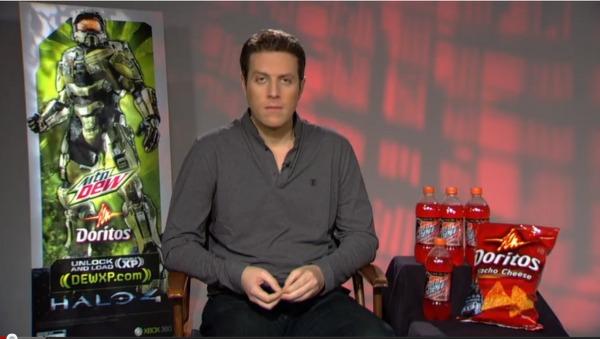
Developments
Following the publishing of the article, journalist Lauren Wainwright, who was quoted in the article for several tweets she made during the GMAs 2012, filed a libel complaint towards Eurogamer together with her employer Intent Media, the organizer of the GMAs. This caused Eurogamer to remove the specific sections in the article where Wainwright was quoted a day after the publishing, which was also explained through an official tweet from Eurogamer.
Following receipt of a complaint from Lauren Wainwright, Eurogamer has removed part of the article Lost Humanity 18. [1/2]
— Eurogamer.net (@eurogamer) 25 oktober 2012
On October 25th, following the decision of Eurogamer to edit the article, Rab Florence decided to leave Eurogamer on his own accord. Alongside his departure, Florence tweeted that he didn't blame Eurogamer because of the pressure of legal action they were placed under and was aware which parties were to blame for the events that happened.
Also, don't blame Eurogamer for this. The threat of legal action brings unbelievable pressure. I am clear on who the bad guys are in this.
— Mr Nyarlathostep (@robertflorence) 25 oktober 2012
In the days following the events, various news and gaming websites reported on it alongside their stance on video game journalism. Many of these shared Florence's message and were displeased with the legal threat by Wainwright, such as Forbes,[4] Rock Paper Shotgun,[5] Penny Arcade,[7] Destructoid[8] and CinemaBlend.[9] Kotaku didn't share Florence's opinion.[10] On October 30th, Eurogamer's Tom Bramwell, the person who edited Florence's article, also made an aftermath article[6] to cover his view and opinion towards the events. In the weeks following the publishing of the article, both the article and the events that followed were commonly discussed on NeoGAF.[11] On November 25th, Geoff Keighley, the person who held the initial interview that led to Florence's article, shared on Twitter that he would respond to Doritosgate (shown below), but never followed through with this. On January 1st, 2013, YouTube channel AngryJoeShow listed Doritosgate as his number 3 of his top 10 gaming controversies of 2012.[12]

Search Interest
External References
[1] Eurogamer – Lost Humanity 18: A Table of Doritos
[2] NeoGAF – Unedited Eurogamer article
[4] Forbes – Video Game Journalist Robert Florence Leaves Eurogamer After Libel Complaints
[5] Rock Paper Shotgun – RPS’s Position On The Eurogamer/Florence Debacle
[6] Eurogamer – Editor's Blog: Lost Humanity 18 Aftermath
[7] Penny Arcade (via Wayback Machine) – What Lauren Wainwright’s reported legal threats against Eurogamer show about the gaming press
[8] Destructoid – From a bag of Doritos to a bag of dirty laundry
[9] CinemaBlend – Eurogamer Writer Loses Job For Pointing Out How Much Video Game Journalism Fails
[10] Kotaku – The Contemptible Games Journalist: Why So Many People Don’t Trust The Gaming Press
[11] NeoGAF – Games Journalism! Wainwright/Florence/Tomb Raider/Eurogamer/Libel Threats/Doritos
[12] AngryJoeShow – Top 10 Gaming Controversies of 2012
Recent Videos 3 total
Recent Images 10 total
Share Pin
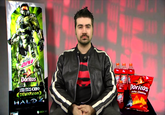
![b12.jpg don't really know, but it probably nfluences a lot of what goes on in our everyday lives Even mundane things, like - which movies and songs become a hit, and what kind of clothes we wear? think taste would be the easiest thing to manipulate I mean think about the kinds of Idm and bands everyone wants to go to see- its whatever's at the top of the charts 40.96 And if the charts are made up Exactly SHOCK THE FUS 10/10 138) 0/101371 Computer and Video Gamea Edge lectronic Gamin g Monthty 9.5/10138] 10/10139 9.6/10 8/10141) Game Infomer GameSpot 8/10 143 9 8/101441 Gane TM CameTrailers Giant Bomb IGN Joystiq 10.0/1010](https://i.kym-cdn.com/photos/images/list/000/810/044/b12.jpg)
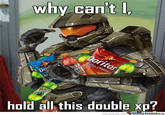
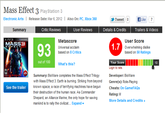
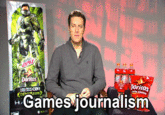






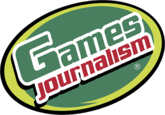


Comments ( 14 )
Sorry, but you must activate your account to post a comment.
Please check your email for your activation code.